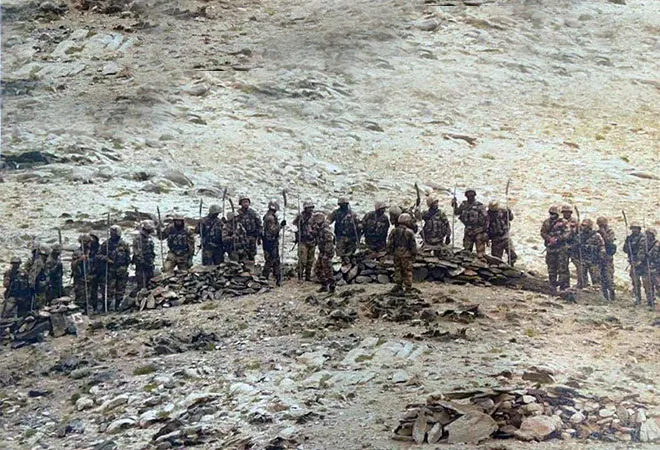The Indian occupation of heights in the southern bank of Pangong Tso can be the means to leverage a settlement of the present dispute. Simply put, India has done in the south bank what China did in the north. For this reason, after providing background briefings claiming that they had occupied all the heights from Black Top to Mukpari and Reqin La, the army is letting it be known that India is not holding either Helmet or Black Top, which are clearly on the Chinese side of the LAC. The ante has been raised, but not as much as was suggested earlier. And it leaves room for compromise.
Some positive indications have come from the meeting between external affairs minister S Jaishankar and his Chinese counterpart Wang Yi in Moscow. Though their joint statement is fairly anodyne, the fact that it is “joint” is significant. But it’s one thing to agree “to abide by all the existing agreements” and quite another to act on that. Especially for China, where the foreign ministry may propose but it is PLA which disposes on border issues.
Since it takes two hands to clap, both must want the same thing before disengagement can happen. There is no indication of that right now. The two have actually adopted positions that mirror each other. For the Chinese action in the north bank of Pangong Tso, India has moved in the south. Both have accused each other of provocation. On Tuesday, China accused Indian forces of crossing the LAC and firing warning shots at its troops. In turn, the Indian side issued a statement accusing PLA of firing warning shots to intimidate Indian troops.
The room for compromise, assuming the Chinese actually want one, is limited. Initially, Prime Minister Narendra Modi sought to give Beijing a way out by denying there had been any incursion in Galwan. But this has been overtaken by the reality of Chinese obstinacy in Pangong Tso and the Depsang area. China has persistently and loudly insisted that Indians are doing all the provoking. This doesn’t sound like a country looking for a compromise.
Chinese actions may not be motivated by concerns relating to eastern Ladakh alone, but part of a wider aim for a world order in which India is firmly established in its place as a subordinate power. Till recently, the Sino-Indian border was described as one of the most peaceful disputed borders in the world. This was the outcome of a far-sighted diplomacy to resolve the issue through dialogue. But since the process began in 1993, the asymmetry between India and China widened so significantly that it has destabilised the basis of the Sino-Indian relationship. What began as a bargain between two equal powers is now resented by China which sees India’s construction of its border infrastructure and its relationship with the US, as impertinence and overreach.
Hierarchy is built into the Chinese strategic mindset, something that becomes evident to anyone who reads its 2017 Asia-Pacific white paper calling on big powers to be understanding of each other, while demanding that middle and small power not take sides. But India, which has its own conceit, has offered a hardball response. Counter-deployments in Pangong and the use of SFF forces comprising Tibetans were aimed at rattling the Chinese and they have. Both sides are building up, and things look set to escalate.
By destabilising the border, the Chinese are compelling India to step up its border defences substantially. Year-round deployments in the heights will sharply escalate defence expenditure. A former financial adviser in MoD, Amit Cowshish, has recently argued that no enhancement in outlay can really bridge the chasm between what the armed forces need and what the government can provide. The Chinese goal could well be to do a Soviet Union on us by compelling us to divert our resources into military spending, pushing us away from the economic trajectory where India looked to besting China in the coming decades.
This commentary originally appeared in The Times of India.
The views expressed above belong to the author(s). ORF research and analyses now available on Telegram! Click here to access our curated content — blogs, longforms and interviews.




 PREV
PREV


